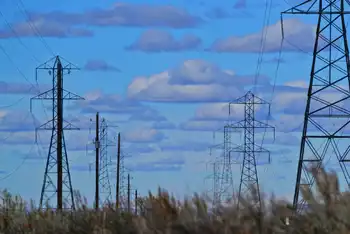AECL agrees on nuclear study in China
BEIJING, CHINA - Atomic Energy of Canada Ltd. has agreed to cooperate with the Nuclear Power Institute of China to study nuclear technology that uses less uranium in response to a possible future shortage of the fuel.
China's plan to build 40 gigawatts of nuclear generation capacity by 2020 would require seven times the uranium that it can currently count among its proven reserves, said AECL's China representative Yang Q. Ruan. This has forced the country to redouble efforts to ensure uranium supply.
"China will need to develop its reserves domestically and invest overseas, or else develop low uranium consumption technology," Ruan said during a ceremony to mark the signing of the memorandum of understanding in Beijing.
Government-owned AECL has built two reactors for Phase III of China's Qinshan nuclear power plant, in the eastern province of Zhejiang, using the CANDU pressure tube design.
CANDU uses about 15 percent less uranium for each megawatt of electricity produced than the pressurized water reactors (PWR) that China now favors.
AECL hopes the cooperation with the institute, in the southwestern city of Chengdu, will lead to future reactor contracts, said Simon Pang, vice president of special projects.
The cooperation will involve study advanced fuel cycles, using thorium as a fuel, and other technologies.
China is one of the world's top three nations in terms of reserves of thorium, a metal that along with uranium contributes to the heat of the earth.
CANDU, developed to burn lower grade natural uranium, is found in reactors in Canada, Argentina, South Korea, India and Pakistan. It can burn spent PWR fuel and recovered uranium, as well as plutonium.
Canada has so far taken a back seat to the United States, Russia and France in supplying nuclear technology to China, which also uses domestically developed models.
Related News

No deal Brexit could trigger electricity shock for Northern Ireland
LONDON - Such a scenario could see thousands of electricity generators being requisitioned at short notice and positioned on barges in the Irish Sea to help keep the region going, a Whitehall document quoted by the Financial Times states.
An emergency operation could see equipment being brought back from places like Afghanistan, where the UK still has a military presence, the newspaper said.
The extreme situation could arise because Northern Ireland shares a single energy market with the Irish Republic.
The region relies on energy imports from the Republic because it does not have enough generating capacity itself, and the UK is aiming…




